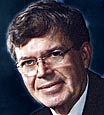Writers Talk Shop, Novel, and Pitch Conference
Commentary by conference attendees

A Conversation With Michael Kopiec
 Michael's novel workshopped at the NYC pitch conference is currently represented by
Sandra Djikstra Literary Agency. Born in Europe, Michael was the first child of two Holocaust survivors. His family immigrated to the USA in the early 1950's, and he grew up
in Brooklyn. He attended medical school and eventually became a surgical specialist. He was in private practice in Scottsdale Arizona until an accident with a drunk driver left him no
longer able to perform surgery. It was during his post accident period, while he was trying to reinvent himself, that he began writing about his parent's incredible and unique story of
survival. He was reminded of how precious a legacy they had left, and he realized how important it was to pass the story of their agony and ultimate triumph to the next
generation. Michael's novel workshopped at the NYC pitch conference is currently represented by
Sandra Djikstra Literary Agency. Born in Europe, Michael was the first child of two Holocaust survivors. His family immigrated to the USA in the early 1950's, and he grew up
in Brooklyn. He attended medical school and eventually became a surgical specialist. He was in private practice in Scottsdale Arizona until an accident with a drunk driver left him no
longer able to perform surgery. It was during his post accident period, while he was trying to reinvent himself, that he began writing about his parent's incredible and unique story of
survival. He was reminded of how precious a legacy they had left, and he realized how important it was to pass the story of their agony and ultimate triumph to the next
generation.
______________
My father was a soldier who survived three years of nearly constant combat with the Nazis. The story is very exciting, but I kept rewriting until finally, it felt right.
- MK
______________
NYC: Do you feel your novel is improved as a result of the NYC Pitch?
MK: Definitely. In general terms, Pitch and Shop helped clarify those elements that are essential
to creating a commercially viable manuscript. When I reviewed my manuscript, I realized I
had to reveal my protagonist as a sympathetic figure much earlier in the book. That was a
point driven home by the questions of some of the acquisition editors. They were looking for
a sympathetic protagonist who would early on, capture and hold the reader's interest.
NYC: What inspired you to write THE UNWILLING SURVIVOR?
MK: I had always assumed I would pass my parentís story on verbally, but I wanted to get dates
and incidents straight and into chronological order. That process led to research, more note
taking, and eventually, I began to consider the possibility of writing their story and passing
the family legacy to my children in the form of a book. At first, I thought it absurd that
someone lacking any experience (my only creative writing class was freshman English) should
attempt to write a book, but eventually, I decided that since my intended audience was my
children and they loved me, I might not embarrass myself too much.
NYC: How has the story evolved?
MK: When I finished my first draft, I found I really had two books. THE UNWILLING
SURVIVOR is the first, and is the story of my father before he met my mother. My father
was a soldier who survived three years of nearly constant combat with the Nazis. The story is
very exciting, but I kept rewriting until finally, it felt right.
NYC: What made you choose to attend the New York Pitch Conference?
MK: I thought this conference would give me helpful insights into the world of legacy publishers
and the business of commercial publishing. What I found was that the Pitch and Shop
conference exceeded those expectations.
NYC: What did you find most effective about the New York experience?
MK: Learning how important the pitch is to the commercial success of your effort, and that
reducing hundreds of pages into a two or three paragraph sound bite that has the power to
excite, entice, but most of all, intrigue a total stranger to the point he or she calls for more
Ö is not only difficult, but an art unto itself. I found the process of learning that art to be
facilitated by the unambiguous and honest critique and direction of my workshop leader, and
the remarkable support of the members of my group. The 14 other people who comprised
my group were not only talented and accomplished, but at all times, supportive. The
atmosphere was one of camaraderie and not at all competitive. A fellow group member
insisted that in terms of getting a reality check on the commercial viability of your
manuscript, no other conference compares to Pitch and Shop.
NYC: Where does the novel go from here?
MK: Although two of the acquisition editors that I pitched have asked to read it, THE UNWILLING SURVIVOR is presently with my agent, and will hopefully be sent out in the next few weeks.
Click here for more details about the conference.
If you need to contact us click here.
|